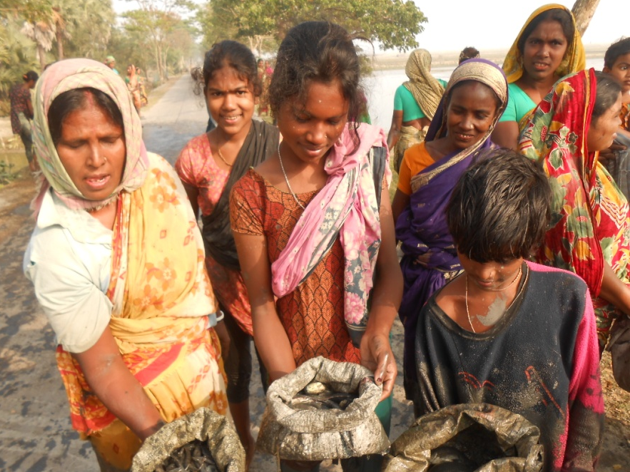Assoc. Prof. Abdullah-Al Mamun
In this podcast, Professor David Little talks with Associate Professor Abdullah-Al Mamun from the Department of Fisheries and Marine Science at Noakhali Science and technology University, Bangladesh, about the findings of his research among shrimp farming communities in South West Bangladesh that prawn farming in extensive systems also produced large co-catch of other species that benefited nutritionally vulnerable people.
This large-scale study into prawn and shrimp production in southwest Bangladesh found that the export-driven culture of shrimp, which has come under some criticism, supports local livelihoods with positive contributions to public health and prosperity, whilst being climate-resilient, contrary to its reputation.
Small fish harvested by local communities
The study was conducted over four years, collecting quantitative and qualitative data from 240 households and 160 shrimp-prawn farms in four different communities.
The study found that a relatively small amount of the total production was exported and that local sales of shrimp as well as co-production of other species provided important income for communities, had a low impact on the environment, whilst providing crucial nutrition.
Watch this Podcast on YouTube
The research found that only 20-40 per cent of all the fish produced – the shrimp and prawn - was destined for export, with a high diversity of other fish being produced, sold and consumed locally in mainly small-scale enterprises.
The full research is published as:
Mamun, A. Al, Murray, F.J., Sprague, M., McAdam, B.J., Roos, N., de Roos, B., Pounds, A., Little, D.C., 2021. Export-Driven, Extensive Coastal Aquaculture Can Benefit Nutritionally Vulnerable People. Front. Sustain. Food Syst. 5, 1–15. https://doi.org/10.3389/fsufs.2021.713140


